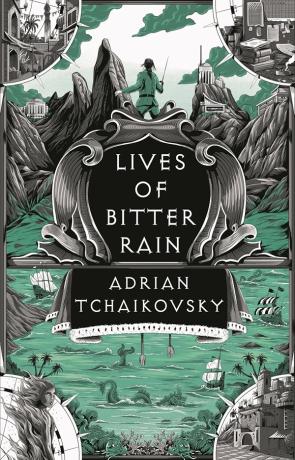Finding a Place in Fantasy a Guest Post by Joshua Phillip Johnson
Fantasy can feel like a packed, oversaturated genre. Some writers seem more than happy to walk well-footed paths when it comes to character arcs, magic systems, and worldbuilding. Maybe more than anything else, the settings of so many fantasy novels seem directly lifted from Tolkien—all babbling brooks and green glades and perfectly picturesque mountains.
Don’t get me wrong, I thrilled at that landscape as a child first reading Lord of the Rings, and I loved many of the other novels that worked and reworked that setting. It felt majestic and powerful and full of possibility. More than anything, that was what pulled me in: the sense that something magical might appear at any moment.
I live in the charmingly named Prairie Pothole Region of the United States. Though it’s now covered in neatly rowed monoculture farm fields, it was once a vast swaying sea of tallgrass prairie. You can still find pockets of the prairie preserved here and there, but each one is only the barest fraction of what the grassland used to be.
To the driver in a hurry or the indifferent observer, the prairie might seem boring. Flat. Plain. A meager monolith. In Journal of a Prairie Year—a book I recommend almost daily—the brilliant Paul Gruchow writes that the prairie is flat “because of the immensity of its distances. And it is flat as a grain of sand is flat to a person who owns no microscope.”
Fantasy is full of landscapes bursting with magic and mystery and power. Mountains and oceans and raging rivers—all of them obviously fantastic and fantastical. But what about something as seemingly simple as grassland?
The Forever Sea sprang from that question, and more soon followed. Could I show the endless beauty I saw in grasses moved by a lively wind? What if I offered a vision of the world that described plants and magic with the same wonder? What if bluestem or prairie smoke or echinacea were just as fantastical as some made-up plant full of magic?
Fantasy, I think, is good at literalizing things. I’m not the first person to imagine the great expanses of tallgrass prairie as a sea, but most authors I’ve seen seeing it that way do so to serve a simile. “It’s like a sea,” they say. And it is. Or was.
But because I’m a heavy-handed monster, I made it a literal sea. It was the only way I could think to access that microscope Paul Gruchow talked about, the only way I could think to show people how this landscape that seems so flat and empty is, in fact, full of magic and potential, packed with diversity and beauty. And if it was going to be a literal sea, then why not follow the logic out and have ships, sailors, monsters of the deep and stories of what mysteries await just over the horizon?
News Archives
- August 2024
- July 2023
- April 2023
- February 2023
- September 2022
- March 2022
- February 2022
- July 2021
- June 2021
- April 2021
- March 2021
- January 2021
- October 2020
- September 2020
- June 2020
- March 2020
- May 2019
- January 2019
- November 2018
- January 2016
- September 2015
- August 2015
- July 2015
- June 2015
- May 2015
- April 2015
- March 2015
- January 2015
- October 2014
- June 2014
- April 2014
- March 2014
- February 2014
- January 2014
- December 2013
- November 2013
- October 2013
- September 2013
- June 2013
- May 2013
- April 2013
- March 2013
- January 2013
- December 2012
- November 2012
- August 2012
- July 2012
- June 2012
- May 2012
- April 2012
- March 2012
- February 2012
- January 2012
- December 2011
- November 2011
- October 2011
- September 2011
- August 2011
- July 2011
- June 2011
- May 2011
- April 2011
- March 2011
- February 2011
- January 2011
- December 2010
- November 2010
- October 2010
- September 2010
- August 2010
- July 2010
- June 2010
- May 2010
- April 2010
- March 2010
- February 2010
- January 2010
- December 2009
- November 2009
- October 2009
- September 2009
- August 2009
- July 2009
- June 2009
- May 2009
- April 2009
- March 2009
- February 2009
- January 2009
- December 2008
- November 2008
- October 2008
- September 2008
